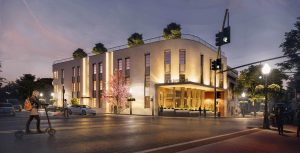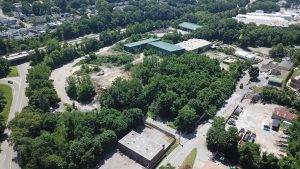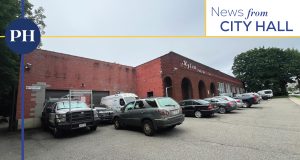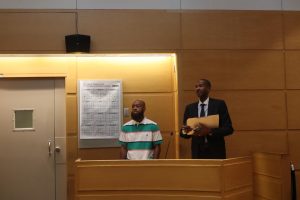Howard Street Homeowner to Housing Developer: “No Thanks”
Even a Homestyle Bakery Pie Won’t Sway this Holdout
September 30, 2021
The debate around the percentage of housing units the city can require developers to earmark as ‘affordable’ continues to take center stage at public meetings and in rallies in front of City Hall. What often goes unnoticed in all the discussions about Average Median Income, hourly wages and numbers of apartment units – is the personal story.
This is one of those stories. Ellie Moshier has been living on Howard Street between Broad and N. James Street for nearly 30 years. Growing up on Howard Hill, just two blocks away, that block was fondly referred to as ‘Moshierville’ by this writer’s family. Moshierville consisted of seven or eight houses neatly kept with flowers in front and all painted the same color.
Moshier now owns four houses on the street and has decided against selling one of her houses at 1123 Howard Street to developer Chuck Lesnick. Lesnick is proposing to build 48 one- and two-bedroom apartments on parcels at Broad and Howard streets – the north edge of a Federal Opportunity Development Zone, one of only 12 such zones in Westchester County. A benefit of a Federal Opportunity Development Zone is the way it’s funded to shield people from paying capital gain taxes when property is sold. The fund is seeded with money that comes from the sale of property. There are specific guidelines that must be met to use the funding in areas designated as Opportunity Zones, including timeline benchmarks. Lesnick said there have been some extensions of time frames due to the pandemic.
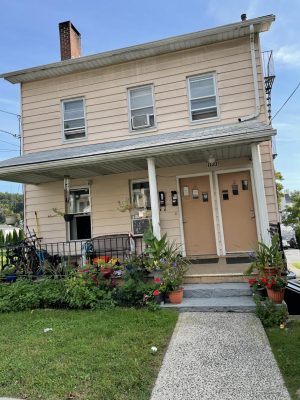
Moshier said she’s been pursued by Lesnick to sell one of her rental properties since the project was announced publicly in January. Lesnick has been pugnacious, but showed his sense of humor when he left a pie with a personal note on her front porch in mid-March (3/14 is “National Pi Day”). Moshier said she wouldn’t think of asking her tenants who have lived in her 3-family house for some 20 years at 1123 Howard Street to vacate so a parking lot for new residents could be made from the sale of the land.
Lesnick explained he’s been coming here for months and has grown to like Peekskill. He said he was familiar with it as a place to visit when he came to see his grandfather in Yorktown as a child. In March of this year, on his way to a ski trip, he and a cousin stopped at Homestyle Bakery on Water Street to buy a pie for his parents. He recalled the words of his mother, ‘you don’t go to someone’s house empty handed.’ “I bought a pie for Ellie in case she answered the door,” said Lesnick, who up until that time hadn’t met with her in person.
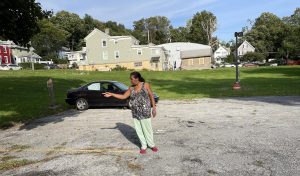
Lesick’s original proposal in February when he presented his mixed-use development to the Common Council was for 74 units with 69 parking spaces. He knew that he wouldn’t be able to fit 69 spaces on the parcel and was planning to lease spaces for his tenants from the city in the James Street parking garage. At that virtual meeting, he was asked to try and incorporate more on-site parking in his project. His proposal also included plans for a hydroponic or green roof for the four-story building and broadband connectivity in the building.
“This isn’t the 1990’s where every family had one car. People have more than one car these days. And parking is already at a premium on this street. I’m not asking my tenants to find a new place to live just so others can have a place to park,” said Moshier.
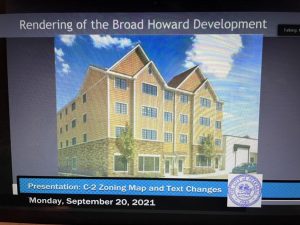
The rents proposed by Lesnick were initially $2,000 for a one bedroom and $2,300 for a two bedroom, at market rate. So-called “workforce” rates would be $1,800 for one bedroom and $2,100 for two bedrooms. He said if Westchester County’s AMI is used to calculate what is workforce for Peekskill, it may be considered low income for the county and his project would be eligible for county money to help with infrastructure construction. He envisions his project to be a combination of 15 percent affordable, 15 percent market rate and 70 percent workforce. “We are looking for a diverse mix” he said.
Because the Broad and Howard project is in a federal opportunity development zone if it is built and sold within ten years, there are no benefits from the sale to Lesnick. His development company must hold onto the property for all ten years. “One of the options we offered Ellie Moshier was the chance to buy into the project. If she sold to us, since we are in a federal opportunity development zone, it would be a way for her to protect the capital gains she would realize if she sold the house for more than she paid for it.”
At the Common Council presentation on September 20, Lesnick’s attorney Mark Blanchard said the footprint of the building has been ‘much reduced’. “If our assemblage could grow, any growth in the number of units would correspond to areas we would add in assemblage.”
“We’ve been trying to purchase adjacent parcels,” said Lesnick. He noted that they do have an easement for a right of way between another property and Ellie’s at 1115 Howard Street.
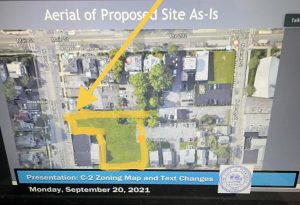
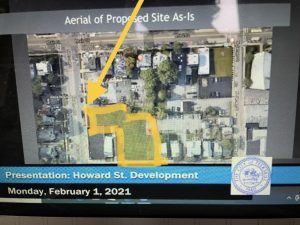
“We want to be a good neighbor to Ellie,” he said, ‘we’ve offered her more money for her house than what we believe she had it listed for,” before his proposal was presented to the city.
One area the two of them agree about is the traffic on the street. “There’s way too much speed,” said Moshier. And parking is already at a premium with many families having more than one car. She said she’s been working with the police department to consider making it a one-way street like the top part of Howard Street is. Lesnick has also been in touch with the police department about traffic flow after learning of Moshier’s concerns.
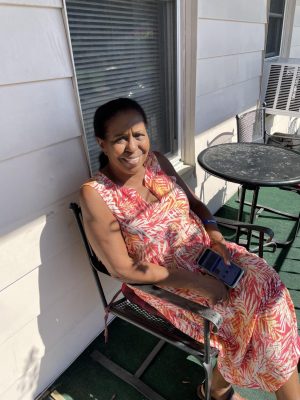
“When I moved onto this block in the late 1990’s there was drug activity and run down houses. It looked like a ghetto. Look at it now — it’s quiet and there are no drugs being sold here,” said Moshier who has her 96-year-old mother living with her.


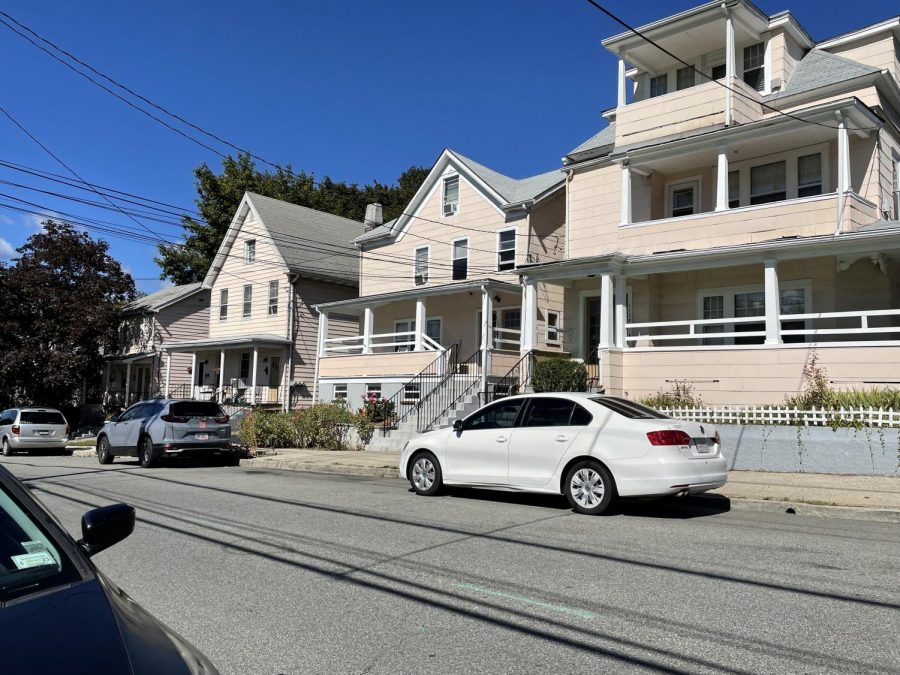
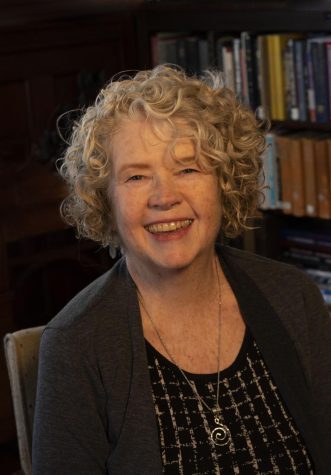

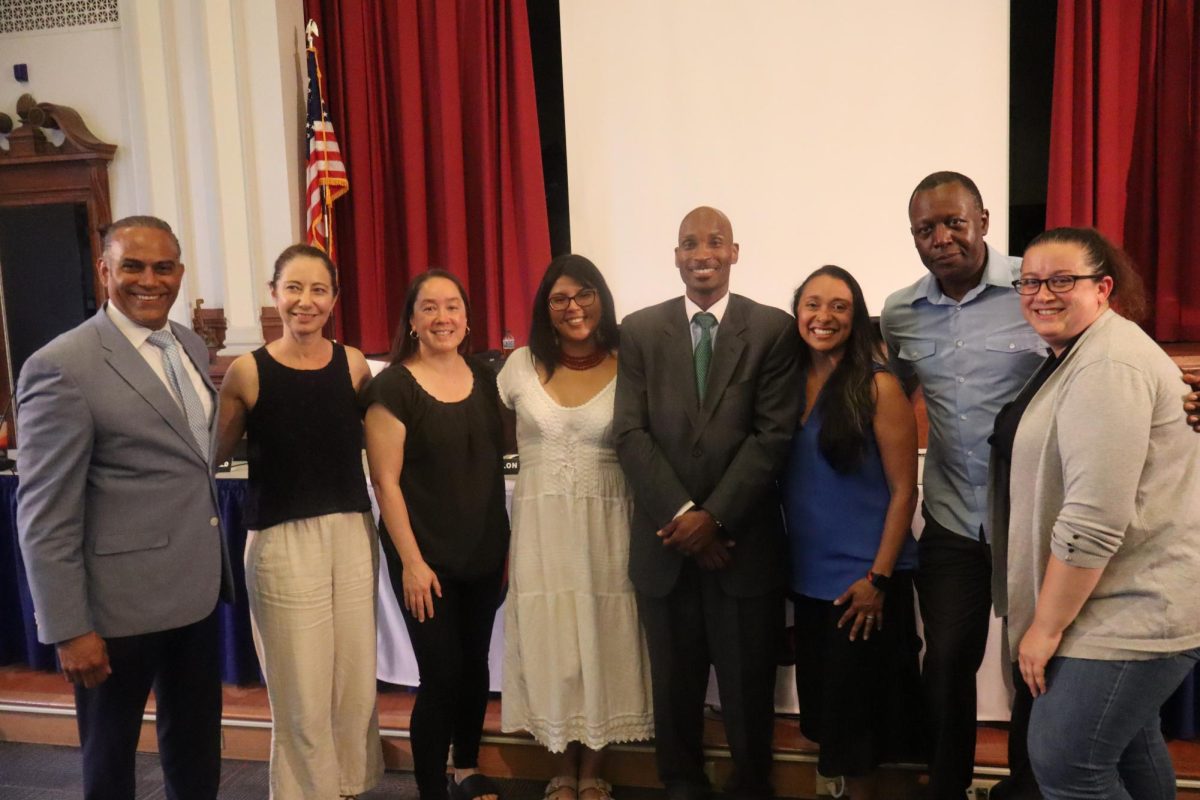


![The historical society conducts educational activities, such as programs where elementary school students experience a day of classes at the Little Red Schoolhouse, recreating the school atmosphere of 1840. (Van Cortlandtville Historical Society)]](https://peekskillherald.com/wp-content/uploads/2025/07/Red-School.jpg)
![The fireworks display over the Hudson River will be visible from Riverfront Green Park and the waterfront area. (Peekskill Herald)]](https://peekskillherald.com/wp-content/uploads/2025/07/Fireworks-e1751375539105-288x300.png)
